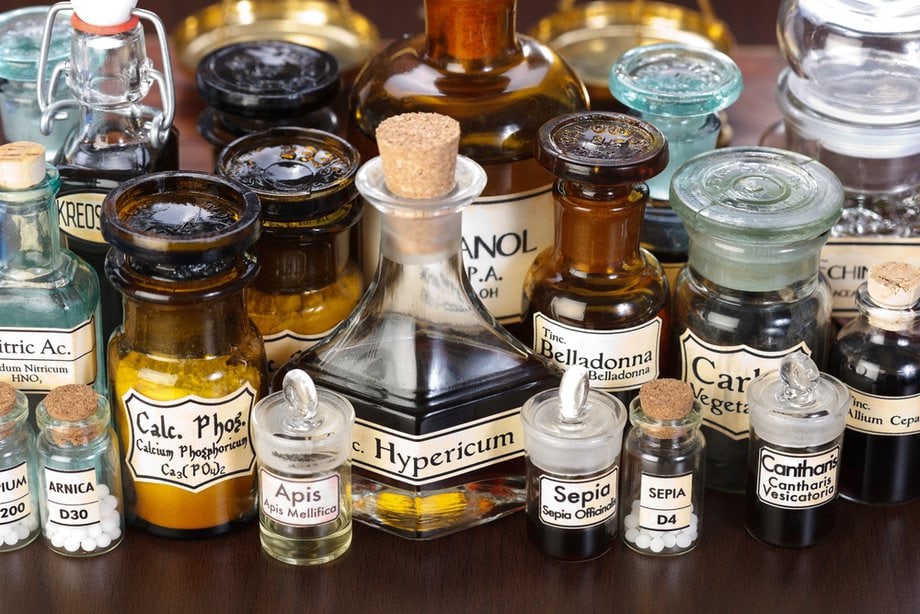What Is The History Of Homeopathy And Its Origins?

Homeopathy is a system of medicine that has been practiced for over two centuries and is based on the principle of ‘like cures like.’ Its origins can be traced back to the late 18th century when the German physician Samuel Hahnemann developed the fundamental principles of this alternative form of medicine.
Initially facing skepticism and opposition from the medical establishment, homeopathy gradually gained recognition and grew in popularity throughout the 19th and 20th centuries. This article provides an overview of the history of homeopathy, discussing its early challenges, growth, and the establishment of homeopathic institutions.
It also examines the modern applications and research in homeopathy, as well as its global reach. Furthermore, criticisms and debates surrounding homeopathy are explored to provide a comprehensive understanding of this controversial medical practice.
Key Takeaways
- Homeopathy was developed by Samuel Hahnemann in the late 18th century and has been practiced for over two centuries.
- Initially facing skepticism and opposition, homeopathy gained recognition and popularity in Europe in the 19th century.
- The principle of ‘like cures like’ is central to homeopathy, suggesting that substances causing symptoms in a healthy person can be used to treat similar symptoms in a sick person.
- Homeopathy has gained acceptance and integration into traditional Chinese medicine, Ayurveda, and national healthcare systems in countries like India, Brazil, Germany, and France.
The Origins of Homeopathy
The origins of homeopathy can be traced back to the late 18th century when German physician Samuel Hahnemann developed the principles and practices of this alternative medical system.
Hahnemann’s journey into homeopathy began when he questioned the prevailing medical practices of his time, which often involved harmful treatments like bloodletting and the use of toxic substances.
Through his observations and experimentation, Hahnemann formulated the principle of ‘like cures like,’ which suggests that a substance that causes symptoms in a healthy person can be used to cure similar symptoms in a sick person.
He also introduced the concept of potentization, which involves diluting and succussing (shaking) substances to enhance their healing properties while minimizing their toxic effects.
Hahnemann’s ideas, published in his book ‘Organon of the Rational Art of Healing,’ laid the foundation for the development and spread of homeopathy as a distinct medical system.
Early Challenges and Growth
Despite facing initial skepticism and opposition, homeopathy experienced steady growth and overcame early challenges.
- Homeopathy gained popularity in Europe in the 19th century, with the establishment of several homeopathic hospitals and dispensaries.
- Samuel Hahnemann, the founder of homeopathy, published his seminal work, the Organon of the Healing Art, which laid the foundation for the practice of homeopathy.
- The success of homeopathy in treating epidemics, such as the cholera outbreak in 1831, further contributed to its acceptance.
- Homeopathy faced criticism from the conventional medical community, who questioned its scientific basis and labeled it as quackery.
- Nevertheless, homeopathy continued to attract patients who were dissatisfied with conventional medicine and sought alternative treatments.
Despite the challenges, homeopathy’s popularity continued to grow, leading to the development of homeopathic schools, societies, and pharmacies.
Its success in treating various ailments and its holistic approach appealed to many individuals, solidifying its place in the world of alternative medicine.
The Principles of Homeopathy
One of the fundamental principles of homeopathy is the concept of ‘like cures like,’ which suggests that a substance that causes symptoms in a healthy person can be used to treat similar symptoms in a sick person.
This principle, known as the Law of Similars, was first proposed by Samuel Hahnemann, the founder of homeopathy, in the late 18th century. Hahnemann believed that diseases were not caused by external factors, but rather by an imbalance of vital energy within the body.
Homeopathic remedies are prepared through a process of dilution and succussion, in which the original substance is repeatedly diluted and shaken vigorously. This process is believed to enhance the healing properties of the remedy while minimizing any potential toxicity.
The principles of homeopathy continue to be a topic of debate within the medical community, with proponents praising its holistic approach and individualized treatment, while skeptics question its scientific basis and reliance on highly diluted substances.
The Rise of Homeopathic Institutions
In recent decades, there has been a significant proliferation of institutions dedicated to the study and practice of homeopathy, indicating a growing interest and acceptance of this alternative medical approach. These institutions serve as centers for education and research, promoting the principles and techniques of homeopathy. They often offer comprehensive training programs that encompass both theoretical knowledge and practical experience.
Some institutions also conduct clinical trials and research studies to further explore the efficacy of homeopathic treatments. Furthermore, these institutions play a crucial role in standardizing homeopathic practices and establishing guidelines for practitioners. They contribute to the professional development of homeopaths by providing continuing education opportunities and facilitating networking among professionals.
Overall, the rise of homeopathic institutions reflects the increasing recognition of homeopathy as a valid and valuable medical discipline.
Homeopathy in the 19th and 20th Centuries
During the 19th and 20th centuries, homeopathy experienced a surge in popularity and gained recognition as a legitimate medical practice, with practitioners establishing clinics and treating patients across the globe. This period saw significant developments in the field, including the establishment of homeopathic colleges and the publication of numerous textbooks and journals.
The following are some key highlights of homeopathy during this time:
- The founding of the American Institute of Homeopathy in 1844, which played a crucial role in promoting homeopathy in the United States.
- The publication of Samuel Hahnemann’s ‘Organon of the Medical Art’ in 1810, which outlined the principles and methods of homeopathy.
- The introduction of new remedies, such as Rhus toxicodendron and Arnica montana, which expanded the range of treatments available to homeopathic practitioners.
- The development of more specialized branches of homeopathy, such as veterinary homeopathy and pediatric homeopathy.
- The ongoing debate between homeopathy and conventional medicine, with critics challenging the scientific basis and efficacy of homeopathic treatments.
Despite these debates, homeopathy continued to grow and evolve during the 19th and 20th centuries, establishing itself as an alternative form of medical practice with a dedicated following.
Modern Applications and Research
This paragraph will discuss the modern applications and research of homeopathy.
Homeopathy has been integrated into different medical systems, such as traditional Chinese medicine and Ayurveda, as a complementary therapy.
Clinical trials and evidence are being conducted to evaluate the efficacy and safety of homeopathic treatments for various conditions.
Additionally, homeopathy is also being utilized in veterinary medicine to provide alternative treatment options for animals.
Homeopathy in Different Medical Systems
Homeopathy has been incorporated into various medical systems around the world. It has found its place in different cultures and traditions, adapting to their specific practices and beliefs.
In India, homeopathy is recognized as one of the national systems of medicine and is widely practiced alongside Ayurveda and allopathy.
In Brazil, homeopathy is integrated into the public healthcare system, with homeopathic remedies being provided through the national health service.
In Germany, homeopathy is commonly used and accepted, with many medical doctors being trained in both conventional medicine and homeopathy.
In France, homeopathy is also widely accepted and reimbursed by the national healthcare system.
This global acceptance and integration of homeopathy into various medical systems highlights its growing recognition and popularity in different parts of the world.
Clinical Trials and Evidence
Clinical trials and evidence play a crucial role in evaluating the efficacy and safety of homeopathic treatments, contributing to the understanding and acceptance of this alternative medical approach. Despite the controversy surrounding homeopathy, numerous studies have been conducted to assess its effectiveness.
However, the results of these trials have been inconsistent and often contradictory. Some studies have reported positive outcomes, suggesting that homeopathy may have a placebo effect, while others have found no significant difference between homeopathic treatments and placebos.
Critics argue that the lack of scientific plausibility and the small sample sizes in many trials undermine the credibility of homeopathy. Additionally, the difficulty in replicating results and the presence of publication bias further complicate the interpretation of the available evidence.
Overall, further rigorous research is needed to establish the true efficacy of homeopathy.
Use of Homeopathy in Veterinary Medicine
The utilization of homeopathy in veterinary medicine has gained attention and interest in recent years due to its potential as an alternative treatment option for animals. Homeopathic remedies are believed to stimulate the body’s natural healing abilities, promoting overall wellness and balance. The principles of homeopathy, such as “like cures like” and individualized treatment, are applied to animals in the same way as in human medicine.
Table:
| Benefits of Homeopathy in Veterinary Medicine | Challenges in the Use of Homeopathy in Veterinary Medicine |
|---|---|
| – Non-toxic and gentle treatment approach | – Limited scientific evidence |
| – Can be used alongside conventional medicine | – Difficulty in finding qualified homeopathic veterinarians |
| – Individualized treatment for each animal | – Lack of standardized dosages and protocols |
| – Potential for reducing reliance on antibiotics | – Skepticism and criticism from conventional veterinarians |
Despite the lack of scientific evidence and skepticism from some conventional veterinarians, homeopathy continues to be explored as a complementary or alternative treatment option for animals. Further research and collaboration between homeopathic veterinarians and conventional practitioners are needed to better understand its efficacy and ensure its safe and effective use in veterinary medicine.
The Global Reach of Homeopathy
With its origins in 18th-century Germany, homeopathy quickly gained popularity and spread globally, attracting believers and practitioners from diverse cultural backgrounds. Today, homeopathy is practiced in many countries around the world and has a global reach.
Here are three interesting aspects of the global reach of homeopathy:
- Acceptance in mainstream healthcare systems: Homeopathy has gained recognition in several countries, with some integrating it into their national healthcare systems. For example, in India, homeopathy is considered an integral part of their healthcare system and is widely accepted by the population.
- International organizations and associations: Homeopathy has a global presence through various international organizations and associations. The World Federation of Homeopathy, for instance, represents homeopathic practitioners from different countries and promotes the development and research of homeopathy worldwide.
- Cultural adaptation and integration: Homeopathy has been adapted and integrated into different cultural contexts. For instance, traditional Chinese medicine has incorporated homeopathic principles, creating a unique blend of practices that cater to the specific needs and beliefs of the Chinese population.
Homeopathy’s global reach is evident through its acceptance in mainstream healthcare systems, international organizations and associations, and cultural adaptation and integration.
Criticisms and Debates
One aspect of the ongoing debates surrounding homeopathy is the lack of scientific evidence supporting its effectiveness.
Critics argue that homeopathic remedies are diluted to the point where they contain little to no active ingredients, making it unlikely that they could have any therapeutic effect. Furthermore, they point out that many studies conducted on homeopathy have found little to no difference between homeopathic remedies and placebos.
The concept of homeopathy, which involves treating a disease with substances that would produce similar symptoms in a healthy person, is also seen as flawed by many scientists. They argue that this goes against the principles of modern medicine, which focus on treating diseases with specific targeted therapies.
Despite these criticisms, proponents of homeopathy maintain that it has a long history of use and anecdotal evidence of its effectiveness.
Frequently Asked Questions
What are the potential side effects of homeopathic treatments?
Potential side effects of homeopathic treatments are rare due to the high dilution of substances used. However, some individuals may experience worsening of symptoms, allergic reactions, or interactions with other medications.
How does homeopathy compare to conventional medicine in terms of efficacy?
Homeopathy has been debated for its efficacy compared to conventional medicine. While some studies suggest positive effects, others attribute any perceived benefits to placebo effects. Further research is needed for a comprehensive understanding.
Are there any scientific studies supporting the effectiveness of homeopathy?
Scientific studies on homeopathy have yielded mixed results, with many showing no significant difference between homeopathic remedies and placebos. The lack of rigorous evidence supporting its effectiveness raises doubts about its efficacy.
Can homeopathy be used as a preventive measure for diseases?
Homeopathy has been suggested as a preventive measure for diseases, but there is limited scientific evidence to support this claim. Further research is needed to determine the effectiveness of homeopathy in preventing diseases.
How do homeopathic remedies differ from herbal remedies?
Homeopathic remedies differ from herbal remedies in that they are highly diluted substances that stimulate the body’s self-healing abilities, while herbal remedies use plant materials to directly treat specific symptoms or conditions.








